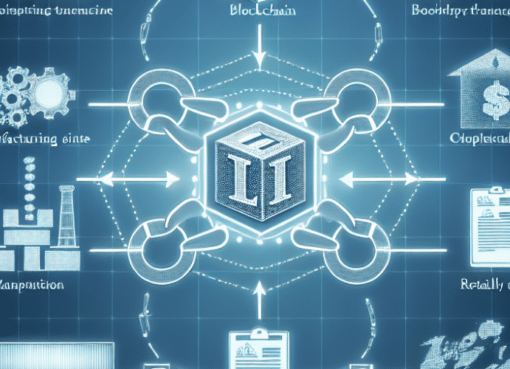In a groundbreaking development in the world of financial technology, several major global banks have commenced the trial phase of a new blockchain-based payment network aimed at enhancing the speed, transparency, and security of cross-border transactions. This pioneering step marks a significant evolution in international banking operations, adapting the distributed ledger technology that underpins cryptocurrencies like Bitcoin to mainstream financial services.
Revolutionizing Cross-border Transactions
The consortium of banks, which includes notable names such as HSBC, Barclays, and Citibank, announced on Monday that the new platform, named “TransactChain,” is designed to streamline payments across borders, cutting down transaction times from days to mere hours. By utilizing blockchain technology, these financial institutions seek to eliminate the traditional pain points of global banking, including delays, high processing fees, and lack of transparency that have long plagued international traders and businesses.
“TransactChain will revolutionize the way our clients do business globally,” stated Emily Rogers, Project Lead and Vice President at HSBC. “By integrating blockchain technology, we aim to significantly reduce transaction times, improve our service’s security, and provide complete transparency to all parties involved in the transaction.”
Secure and Transparent Framework
Blockchain technology offers a unique advantage in terms of security and transparency, features that are critical in the financial industry. Each transaction on the blockchain is encrypted and linked to the previous transaction, forming a chain that is extremely difficult to alter. This ensures that every transaction is secure and traceable, preventing fraud and unauthorized activities.
Moreover, the decentralized nature of the blockchain means that no single entity has control over the entire network, reducing the risk of systemic failures and increasing trust among users. This transparency is especially crucial for compliance with international regulations, such as the Anti-Money Laundering (AML) and Know Your Customer (KYC) policies.
Implications for the Financial Industry
This initiative is one of the largest and most coordinated efforts by traditional banks to harness the potential of blockchain technology. It not only underscores the growing recognition of blockchain as a critical tool in financial operations but also signals a shift in how global financial institutions are planning to address the inefficiencies of modern banking.
Analysts predict that the successful implementation of TransactChain could set a precedent for other financial services, prompting more widespread adoption of blockchain technology across the sector. This could lead to a more interconnected and efficient global financial system, drastically reducing the costs and complexities associated with international business operations.
Future Prospects and Challenges
While the potential benefits of TransactChain are substantial, the project also faces significant challenges. Integrating blockchain into existing financial systems, ensuring compliance with global financial regulations, and achieving interoperability between different banking networks are some of the hurdles that need to be addressed during the trial phase.
Furthermore, there is a need for a robust regulatory framework that can accommodate the new technologies while ensuring the protection of consumers and the integrity of the financial system. Regulators around the world will need to work closely with financial institutions to create a conducive environment for the growth of blockchain-based financial services.
Conclusion
The trial phase of TransactChain by major global banks marks a milestone in the adoption of blockchain technology in mainstream financial services. As the project progresses, it will be crucial to monitor its impact on the efficiency, security, and transparency of international transactions. If successful, TransactChain could herald a new era in global banking, making international business faster, safer, and more reliable for everyone involved.
This development is a clear indicator of the transformative potential of blockchain technology in redefining the financial landscape. Stakeholders in the global economy—ranging from banks to businesses and regulators—will need to stay informed and adaptive to leverage the opportunities this technology brings while navigating its challenges.




